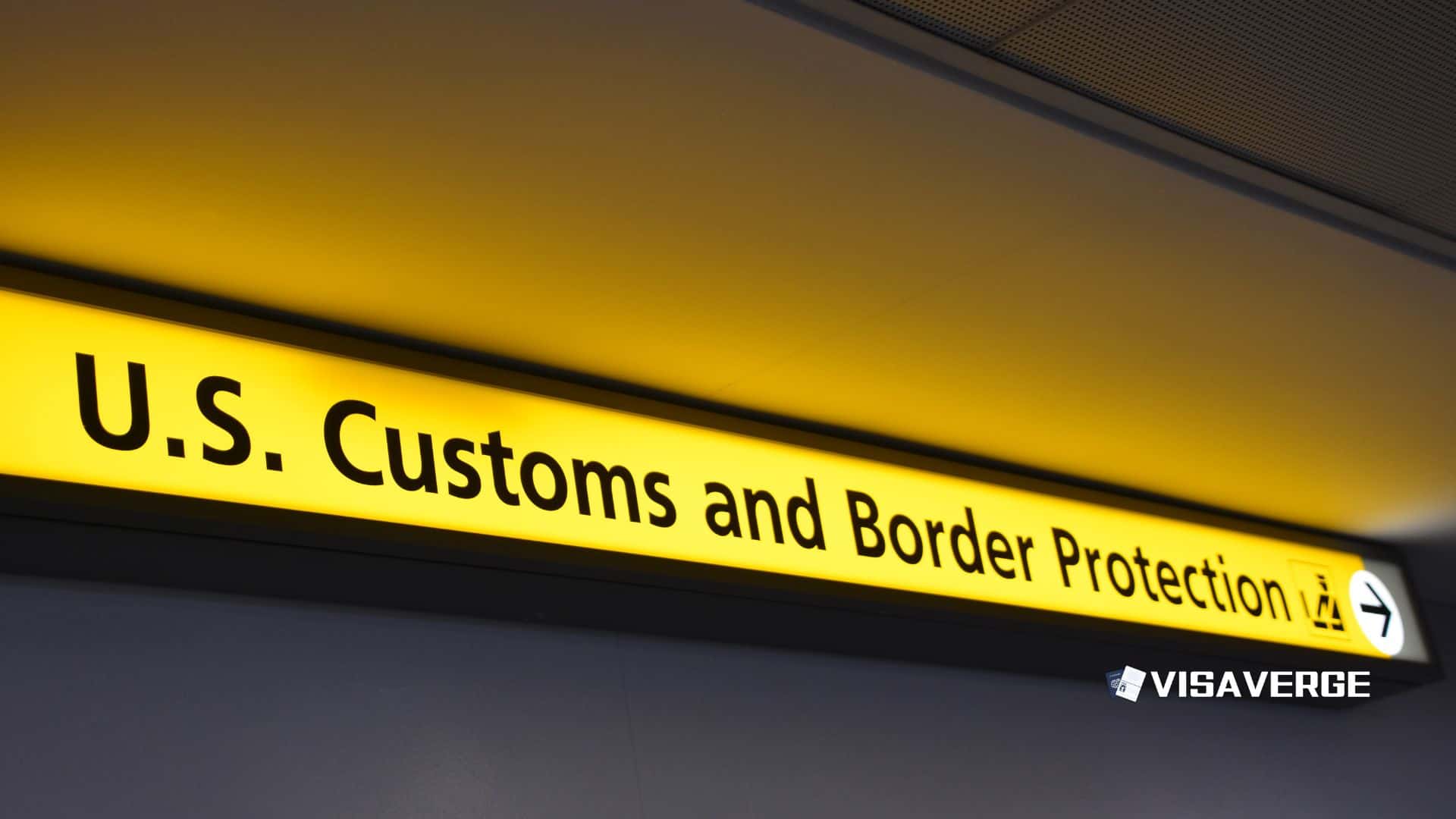Key Takeaways
• Ximena Arias-Cristobal was mistakenly arrested in Georgia and detained by ICE for over two weeks in May 2025.
• Charges were dropped after dashcam footage showed she wasn’t responsible; arresting officer resigned.
• She was released on a $1,500 bond but faces deportation with next hearing in mid-2026.
A 19-year-old college student, Ximena Arias-Cristobal, found herself at the center of a national immigration debate after a mistaken arrest in Dalton, Georgia, led to her detention by U.S. Immigration and Customs Enforcement (ICE). On May 22, 2025, she was released from the Stewart Detention Center after spending more than two weeks in custody, thanks to a $1,500 bond set by an immigration judge. The incident, which began with a routine traffic stop on May 5, 2025, has sparked widespread community support, raised questions about local police cooperation with federal immigration authorities, and highlighted the challenges faced by undocumented youth who do not qualify for existing protections like DACA.
Mistaken Arrest and Detention: What Happened?

Ximena Arias-Cristobal, a student at Dalton State College, was pulled over by Dalton police on May 5, 2025, for an alleged illegal turn and driving without a license. She was booked into the Whitfield County Jail, where her undocumented status was discovered. This triggered a notification to ICE, which is standard practice in many Georgia jurisdictions due to information-sharing agreements between local law enforcement and federal immigration authorities.
Despite not being the driver involved in the alleged traffic violation—something later confirmed by dashcam footage and a review by the Dalton city attorney—Arias-Cristobal was transferred to the Stewart Detention Center in Lumpkin, Georgia. She remained there for over two weeks, separated from her family and community, until her bond hearing on May 22, 2025.
Charges Dropped, Officer Resigns
The case took a dramatic turn when Dalton city officials, after reviewing dashcam footage, determined that Arias-Cristobal was not the person who committed the traffic violation. All charges against her were dropped. In response to the error, Dalton Police Department officer Leslie O’Neal, who made the arrest, resigned from the force. Assistant Chief Chris Crossen called the situation “regrettable,” and the department has stated it is reviewing its procedures to prevent similar mistakes in the future.
Dalton City Attorney Jonathan Bledsoe confirmed that the traffic stop was a mistake, leading to the dismissal of all charges. This official acknowledgment did little to ease the trauma experienced by Arias-Cristobal, who described her time in detention as “life-changing” and said, “I won’t ever be the same.”
Release from Stewart Detention Center and Ongoing Legal Battle
After more than two weeks in ICE custody, Arias-Cristobal was granted a $1,500 bond at her immigration hearing. She was released from the Stewart Detention Center on May 22, 2025, and reunited with her family in Dalton, Georgia. However, her legal challenges are far from over. She remains under threat of deportation, with her next immigration court hearing not expected until at least mid-2026 due to significant federal backlogs.
Her attorney, Dustin Baxter of Kuck Baxter Immigration Attorneys, confirmed that the case has been removed from the “rocket docket”—a fast-track process for certain deportation cases—and will now proceed through the standard immigration court system. This change gives Arias-Cristobal and her legal team more time to explore possible avenues for relief, though options are limited.
Why Is Ximena Arias-Cristobal at Risk of Deportation?
The U.S. Department of Homeland Security has stated that Arias-Cristobal must “self-deport” to Mexico 🇲🇽, as she has no pending applications with U.S. Citizenship and Immigration Services (USCIS) and admitted to entering the United States 🇺🇸 without legal permission. She is not eligible for DACA (Deferred Action for Childhood Arrivals), a program that protects some undocumented youth from deportation, because her family arrived in 2010—three years after the program’s 2007 continuous residency cutoff.
This situation is not unique to Arias-Cristobal. Many undocumented youth who arrived in the United States 🇺🇸 as children are ineligible for DACA due to the program’s strict requirements. As reported by VisaVerge.com, her case highlights the gaps in current immigration protections and the vulnerability of young people who have grown up in the United States 🇺🇸 but lack a path to legal status.
Community Response: Support and Advocacy
Arias-Cristobal’s case has sparked a wave of support both locally and nationally. Over 8,000 people signed a petition urging her release from ICE custody. Community members, advocacy groups, and Dalton State College students organized protests, fundraising efforts, and public campaigns to draw attention to her situation.
Local Hispanic and immigrant advocacy organizations have argued that her case is a clear example of why broader immigration reform is needed. They point to the dangers of local police involvement in federal immigration enforcement, especially when minor infractions can lead to life-altering consequences for undocumented individuals.
The Role of Local Police and ICE: A Broader Debate
The mistaken arrest and subsequent detention of Arias-Cristobal have reignited debate over the role of local law enforcement in immigration matters. In many parts of Georgia and other states, local police routinely share information with ICE, which can result in the detention and deportation of undocumented immigrants for minor offenses.
Critics argue that this practice undermines trust between immigrant communities and law enforcement, making people less likely to report crimes or cooperate with police. Supporters of the policy say it helps enforce immigration laws and maintain public safety. The Dalton Police Department has stated it is reviewing its procedures in light of this incident.
DACA Eligibility Gaps: A Common Problem
A key issue in Arias-Cristobal’s case is her ineligibility for DACA. The program, created in 2012, allows certain undocumented immigrants who arrived in the United States 🇺🇸 as children to apply for temporary protection from deportation and work authorization. However, applicants must have lived in the United States 🇺🇸 continuously since June 15, 2007. Arias-Cristobal’s family arrived in 2010, making her and many others in similar situations ineligible.
This gap leaves thousands of young people without any legal protection, even though they have spent most of their lives in the United States 🇺🇸, attended American schools, and contributed to their communities. Immigration policy analysts say cases like Arias-Cristobal’s show the urgent need for Congress to revisit and possibly expand DACA or create new pathways to legal status for undocumented youth.
Step-by-Step Breakdown: How the Case Unfolded
To help readers understand the process, here’s a step-by-step look at what happened in Arias-Cristobal’s case:
- Traffic Stop and Arrest: Arias-Cristobal was pulled over for an alleged illegal turn and driving without a license.
- Booking and ICE Notification: She was booked into Whitfield County Jail, where her undocumented status was discovered and ICE was notified.
- Transfer to ICE Detention: She was transferred to the Stewart Detention Center in Lumpkin, Georgia.
- Review and Dropping of Charges: Dashcam footage showed she was not the driver; all charges were dropped.
- Bond Hearing: On May 22, 2025, an immigration judge set her bond at $1,500.
- Release and Ongoing Proceedings: She was released from detention but remains in deportation proceedings, with her next court date likely in mid-2026.
Legal and Policy Implications
Arias-Cristobal’s legal team, led by attorney Dustin Baxter, is working to find any possible way to secure her long-term stay in the United States 🇺🇸. However, her options are limited. Without eligibility for DACA or another form of relief, and with no pending applications with USCIS, her case depends on the discretion of immigration judges and possible changes in law or policy.
Legal experts note that her removal from the expedited “rocket docket” gives her more time to prepare her case, but does not guarantee a positive outcome. The Department of Homeland Security has made it clear that it intends to pursue her deportation unless new legal grounds for relief are found.
For more information about the immigration court process and deportation proceedings, readers can visit the U.S. Department of Justice’s Executive Office for Immigration Review for official resources and updates.
Multiple Perspectives: Stakeholders Respond
The case has drawn responses from a wide range of stakeholders:
- Arias-Cristobal and Her Family: They are grateful for her release but remain fearful about the future. The experience of detention was traumatic, and the threat of deportation still hangs over them.
- Legal Counsel: Attorney Dustin Baxter is focused on finding any possible legal relief and has criticized both the mistaken arrest and the involvement of ICE in what began as a minor traffic stop.
- Dalton Police Department: The department has expressed regret over the error, and the officer involved has resigned. Officials say they are reviewing procedures to prevent similar incidents.
- City Attorney: Jonathan Bledsoe confirmed the mistake and dropped all charges, cooperating with the ongoing legal process.
- Department of Homeland Security/ICE: Officials state that Arias-Cristobal must “self-deport” due to her lack of legal status and ineligibility for relief.
- Community and Advocacy Groups: Local and national organizations have mobilized in support, calling for policy changes to protect undocumented youth and limit local police involvement in immigration enforcement.
Background: Life in the United States 🇺🇸 and Family History
Arias-Cristobal’s family came to Georgia from Mexico 🇲🇽 in 2010, when she was just four years old. She grew up in Dalton, attended Dalton High School, and is now a student at Dalton State College. Her father was also detained by ICE after a separate traffic stop but was later released on bond. The family’s experiences reflect the broader challenges faced by undocumented immigrants in the United States 🇺🇸, especially in states with strong local-ICE cooperation.
What’s Next for Ximena Arias-Cristobal?
With her next immigration court hearing not expected until mid-2026, Arias-Cristobal faces a long period of uncertainty. Her attorneys are exploring every possible legal option, but the current law offers few pathways for someone in her situation. The case is likely to remain in the public eye, as community groups continue to advocate for her and for broader changes to immigration policy.
In the meantime, Arias-Cristobal is back with her family and trying to resume her studies at Dalton State College. She remains under strict legal supervision and must comply with all court requirements while her case is pending.
Practical Guidance for Others in Similar Situations
For undocumented immigrants and their families, Arias-Cristobal’s case offers several important lessons:
- Know Your Rights: If stopped by police, individuals have the right to remain silent and to ask for an attorney.
- Seek Legal Help: Contact an experienced immigration attorney as soon as possible if detained or facing deportation.
- Community Support Matters: Public petitions, advocacy, and community support can make a difference in individual cases.
- Stay Informed: Keep up to date with changes in immigration law and policy, as these can affect eligibility for relief.
For official information on immigration forms, including applications for relief, visit the U.S. Citizenship and Immigration Services (USCIS) Forms page.
The Bigger Picture: Calls for Reform
Arias-Cristobal’s story has become a rallying point for those seeking changes in immigration law. Advocates argue that the current system leaves too many young people without protection, even when they have lived most of their lives in the United States 🇺🇸. The case has also renewed calls for clearer separation between local policing and federal immigration enforcement, to prevent minor mistakes from leading to life-changing consequences.
As analysis from VisaVerge.com suggests, cases like this one highlight the urgent need for Congress to address the gaps in existing immigration protections and to consider new pathways for undocumented youth who contribute to their communities but lack legal status.
Conclusion: A Case That Resonates Beyond Dalton
The case of Ximena Arias-Cristobal is about more than one student or one mistaken arrest. It reflects the complex realities of immigration enforcement in the United States 🇺🇸, the challenges faced by undocumented youth, and the power of community action. As she waits for her next court date, Arias-Cristobal’s experience continues to inspire debate, advocacy, and hope for a more just and humane immigration system.
Actionable Takeaways:
– If you or someone you know is facing a similar situation, seek legal help immediately.
– Stay connected with community organizations and advocacy groups for support.
– Follow official government resources for the latest updates on immigration law and court procedures.
– Participate in public advocacy efforts to support broader policy change.
For ongoing updates and official information, visit the U.S. Department of Justice’s Executive Office for Immigration Review.
Learn Today
ICE → U.S. Immigration and Customs Enforcement, a federal agency enforcing immigration laws and detaining undocumented immigrants.
DACA → Deferred Action for Childhood Arrivals, a program protecting eligible undocumented youth from deportation and authorizing work.
Rocket Docket → An expedited immigration court process prioritizing quick removals, often limiting legal defense opportunities.
Bond → Money paid to secure release from custody before immigration court hearings.
Undocumented → A person residing in a country without legal immigration status or authorization.
This Article in a Nutshell
Ximena Arias-Cristobal’s mistaken arrest highlights risks undocumented youth face. Released after two weeks detained by ICE, she now confronts deportation and limited legal relief. Community support and calls for reform grow as legal battles continue amid gaps in immigration protections for young immigrants like her.
— By VisaVerge.com













